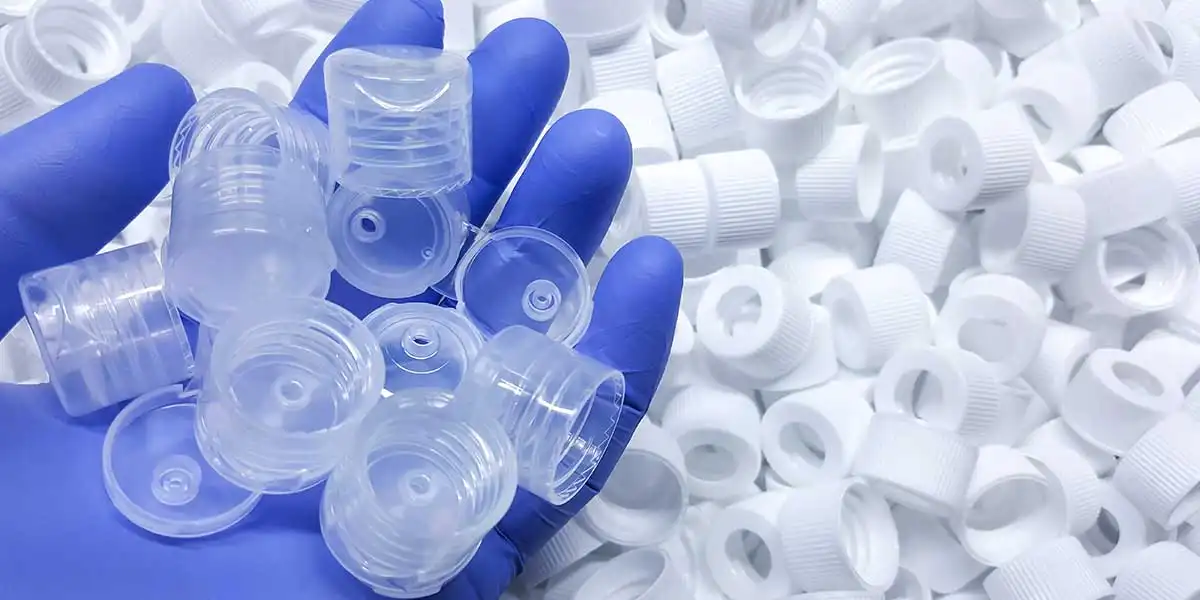
May 10, 2024
Blog Life Sciences , Materials Revolutionizing Healthcare: How Plastic Packaging Transforms Medical Products
In recent decades, plastic has played a transformative role across various industries, but its impact on healthcare stands out. As healthcare advanced rapidly, plastic became the go-to material for making essential medical items. From everyday items like blood bags and disposable syringes to more complex devices like prosthetics and heart valves, plastic has had a significant impact on the field of medicine.
Plastic packaging is used a lot in many industries, including healthcare. It's made some incredible things, like prosthetics for moving and hearing aids for better hearing. A new study shows that more healthcare places want plastic packaging. This is helping the market for the plastic packaging industry and is expected to be one of the key factors driving the growth of the market.
Growing Pharmaceutical and Pharmaceutical Packaging Industry: In the past few years, the pharmaceutical industry has grown worldwide. More people are interested in healthcare products, and with the population getting older, the demand for these products has gone up. Also, the need for good packaging in healthcare has boosted the global market for plastic healthcare packaging.
Benefits and Cost-Effectiveness of Plastics over Other Packaging Materials: This is about pointing out why using plastics for packaging is better than using other materials. Plastics are good because they're strong but light, so they're easy to carry and protect things well. They can be shaped in lots of different ways and they're tough against water and chemicals. Using plastics can also save money because they're cheaper to make and ship, which can lower the overall cost of packaging compared to other options.
According to BCC Research Report on Plastics for Healthcare Packaging was valued at $32.1 billion in 2023 and will reach $46.1 billion by the end of 2028 at a compound annual growth rate (CAGR) of 7.5% during the forecast period of 2023 to 2028.

The global market value of plastics for healthcare packaging is expected to grow from $32.1 billion in 2023 and should reach $46.1 billion by the end of 2028, at a compound annual growth rate (CAGR) of 7.5% during the forecast period of 2023 to 2028.
Plastics have played a big role in changing healthcare. They're flexible and can be used for lots of different medical things like syringes and heart valves. Plastics are tough too, so they're great for safety caps on medicine and for carrying things without breaking. They're also cheap to make a lot of, so we can have plenty of medical equipment without spending too much money. And unlike metal, they don't easily wear out or rust, so they're easier to take care of.
New research from the World Health Organization (WHO) shows that the COVID-19 response has led to a huge increase in medical waste, much of it made of single-use plastic. The high demand for personal protective equipment (PPE), testing kits, and vaccine packaging has made it harder to manage all this extra waste in hospitals. Because of COVID-19, more people want these kinds of plastic packages to help stop the spread of germs and keep things clean.
The healthcare industry is always changing, and so is the way we design packaging for medical devices. In the future, we'll likely see even more improvements, like smart packaging that can check if products are still good, and plastics that break down in the environment. Also, there's a big focus on making packaging that helps patients take their medicine correctly, like blister packs with reminders. Plastic packaging will always be important for keeping medical products safe from harm and mistakes. That's why top organizations use strict tests like the ones from Van der Stähl Scientific.
Plastic has become important in healthcare because it's great for making medical tools and packaging medicine. It's good because it works well with our bodies, it's not too expensive, and we can make it fit whatever we need. But we also need to be careful about which plastics we use, follow rules about them, and think about how they affect the environment. As we learn more and technology gets better, plastic can help make healthcare even better and more eco-friendly.
Consider becoming a member of the BCC Research library and gain access to our full catalog of market research reports in your industry. Not seeing what you are looking for? We offer custom solutions too, including our new product line: Custom Intelligence Services.
Contact us today to find out more.

Divya Dhamija is a Senior Executive of Marketing Operations at BCC Research, with a master’s degree in business. She specializes in optimizing marketing strategies and content creation and is dedicated to driving organizational growth through strategic marketing initiatives.

Biophotonics: Technologies and Global Markets (PHO024B)
In today’s fast-paced biomedical world, researchers and pharmaceutical companies...

Radiopharmaceuticals represent a cutting-edge frontier in modern medicine, offer...

We are your trusted research partner, providing actionable insights and custom consulting across life sciences, advanced materials, and technology. Allow BCC Research to nurture your smartest business decisions today, tomorrow, and beyond.
Contact UsBCC Research provides objective, unbiased measurement and assessment of market opportunities with detailed market research reports. Our experienced industry analysts assess growth opportunities, market sizing, technologies, applications, supply chains and companies with the singular goal of helping you make informed business decisions, free of noise and hype.